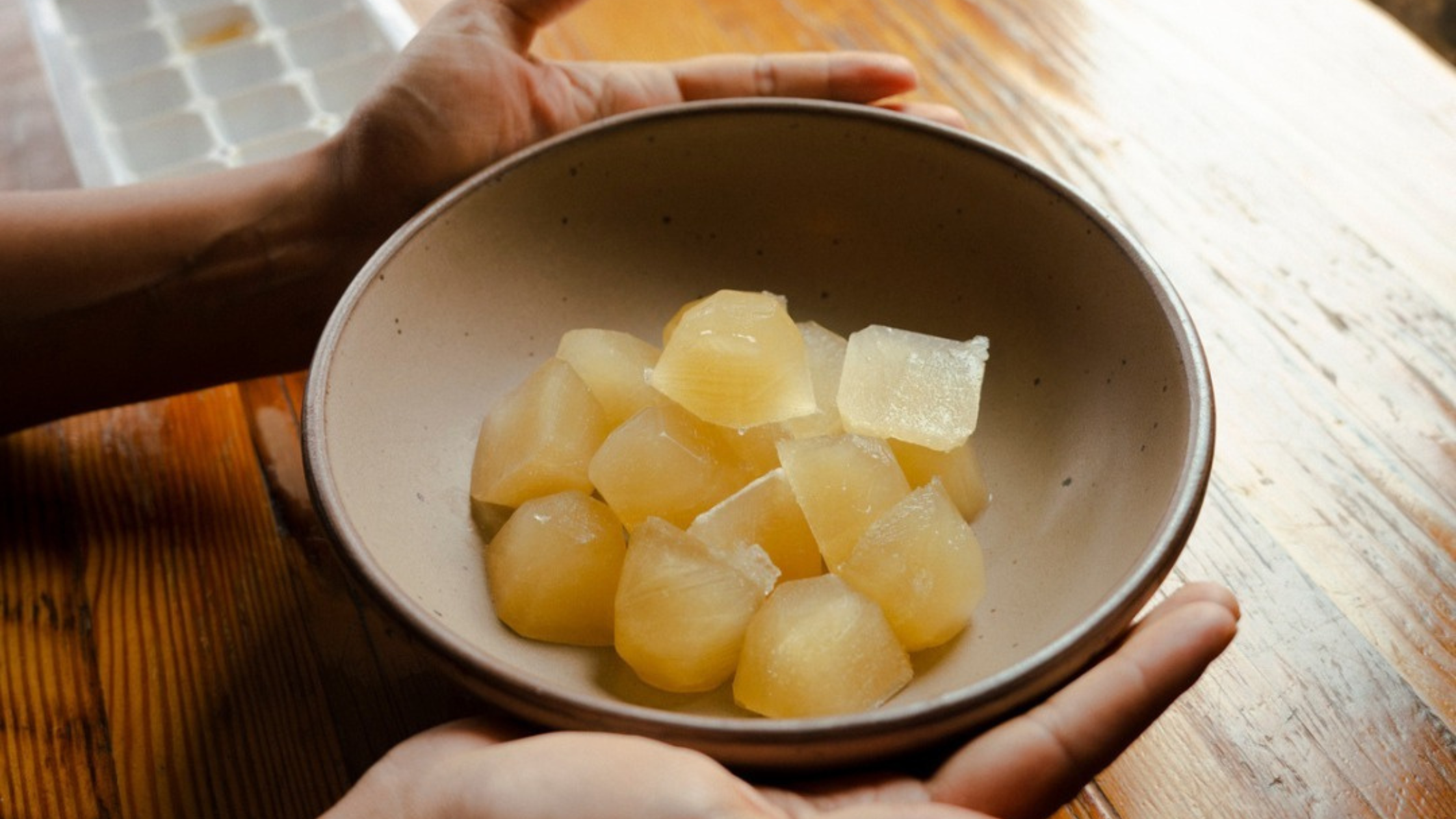The aRelevance of Healthy Food: Why Bone Broth Is a Wonderful Choice for Infants
Bone broth stands out as a nutrient-dense choice, providing necessary vitamins and minerals that support development and advancement. What are the ideal methods to present bone broth to your little one?
Nutritional Perks of Bone Broth for Infants
When you present bone broth to your baby's diet plan, you're offering a nutrient-dense food that offers countless wellness benefits. Packed with crucial minerals and vitamins, bone broth consists of calcium, magnesium, and phosphorus, which sustain your baby's expanding bones. It's additionally rich in collagen, helping in the growth of healthy and balanced skin, joints, and connective tissues.
Moreover, bone broth is a superb source of amino acids like glycine and proline, which play a significant duty in general growth and muscular tissue advancement. These nutrients aid advertise a solid body immune system, establishing a strong foundation for your infant's wellness.
Additionally, bone broth is easy to digest, making it a gentle option for your kid. By including this wholesome food right into their dishes, you're ensuring they get crucial nutrients necessary for their overall well-being. Go in advance and make bone broth a staple in your baby's diet regimen!
Just How Bone Broth Sustains Digestion
Bone broth is packed with vital nutrients that can truly benefit your infant's digestion. It promotes gut wellness and aids with nutrient absorption, making it a fantastic addition to their diet plan. By integrating bone broth, you're setting the stage for a healthier gastrointestinal system.
Nutrient-Rich Structure
Among one of the most nutrient-rich foods you can introduce to your baby's diet is bone broth, which is packed with essential minerals and amino acids that support healthy digestion. Rich in collagen, bone broth assists strengthen your infant's gut lining, making it much easier for their body to absorb nutrients. It gives jelly, which aids in damaging down healthy proteins, advertising smoother digestion. Furthermore, the broth consists of important electrolytes like potassium and magnesium, guaranteeing your infant remains hydrated and stabilized. The amino acids, such as glycine and proline, play a vital function out of commission cells and supporting total health (bone broth for pregnancy). By integrating bone broth into your infant's meals, you're providing a wholesome food that supports their digestion system efficiently.
Promotes Digestive Tract Wellness
As you present bone broth right into your baby's diet plan, you'll locate it not only nurtures however likewise promotes intestine health properly. Rich in jelly, bone broth helps calm the digestive system, lowering swelling and sustaining a healthy digestive tract lining. This is crucial for infants, as a well balanced gut setting lays the structure for total wellness. In addition, the amino acids found in bone broth, such as glycine, help in food digestion and can assist avoid usual tummy problems. By including this nourishing liquid, you're giving your child with important nutrients that contribute to a successful gastrointestinal system. Ultimately, a healthy and balanced digestive tract can affect whatever from immunity to state of mind, making bone broth an exceptional option for your youngster.
Aids Nutrient Absorption
Presenting bone broth not only sustains gut health but also plays a significant function in aiding nutrition absorption. When you provide your baby bone broth, you're giving a rich resource of minerals and amino acids that boost their digestive procedures. The gelatin in bone broth helps to soothe the gut lining, improving its capability to take in necessary nutrients. This indicates that crucial minerals and vitamins from other foods are more effectively made use of by your baby's growing body. Furthermore, bone broth has collagen, which supports the advancement of healthy cells and body organs. By integrating this nutrient-dense fluid into your baby's diet regimen, you're ensuring they obtain the optimum take advantage of their meals, advertising total wellness and health.
Strengthening the Body Immune System With Bone Broth

By incorporating bone broth into your child's diet regimen, you're giving a natural resource of sustenance that advertises health. Consider making bone broth a staple in your baby's meals, as it can play an essential duty in their immune health and wellness and growth.
Easy Ways to Integrate Bone Broth Into Baby's Diet regimen
Including bone broth right into your infant's diet can be basic and gratifying. You can also utilize bone broth as a base for soups or stews that you prepare for the family, ensuring your infant obtains a preference of tasty, healthy and balanced meals.
If your baby enjoys grains, think about cooking rice or quinoa in bone broth rather of water for additional nutrition. These approaches will certainly aid your baby enjoy the advantages of bone broth effortlessly!
Homemade vs. Store-Bought Bone Broth: What to Pick
Which is much better for your baby: homemade or store-bought bone broth? Self-made bone broth offers you full control over the components. You can choose top notch bones, organic veggies, and natural herbs, ensuring your baby obtains one of the most nutrients without additives or chemicals. Plus, making it in your home can be a fulfilling experience, permitting you to bond with your infant while preparing wholesome food.
On the other hand, store-bought options are convenient and save you time. They usually have chemicals and might not match the deepness of taste and nourishment you get from homemade broth. If you select store-bought, try to find brands that are natural and without additives.
Inevitably, if you have the moment and resources, homemade bone broth is the superior selection for your child's wellness. If you're short on time, choose a top quality store-bought alternative as a backup.
Age-Appropriate Bone Broth Serving Pointers
As your child expands, it's essential read what he said to tailor bone broth offering pointers to their developing stage. For infants around six months, begin with a few does of watered down bone broth (where to get bone broth).
When your infant gets to around eight months, you can serve it warm in a sippy cup or include it to soft foods like purees. By the time your child is around a year old, take into consideration offering bone broth as a standalone drink or mixing it into soups and stews. Just see to it to keep the broth low in salt. Always keep track of for any kind of reactions, and consult your doctor if you have problems about presenting brand-new foods. Enjoy this nutritious enhancement to your child's diet plan!
Other Healthy And Balanced Foods to Combine With Bone Broth for Infants
When you're seeking to boost the nutritional value of bone broth for your infant, think about matching it with nutrient-dense veggies like carrots and spinach. Entire grain choices, such as quinoa or brown rice, can also add texture and fiber. In addition, incorporating healthy protein resources like shredded chicken or lentils will round out the dish nicely.

Nutrient-Dense Veggies
Nutrient-dense veggies are a superb enhancement to bone broth for infants, improving both taste and nutrition. Including veggies like carrots, spinach, and wonderful potatoes can enhance the minerals and vitamin material of your broth. Carrots supply beta-carotene for healthy vision, while spinach is loaded with iron and calcium, important for growth. Sweet potatoes include natural sweetness and are rich in fiber, helping digestion.
You can quickly blend these vegetables into the broth or offer them as soft, prepared items along with it. This not just presents new tastes yet likewise motivates your kid to delight in a variety of nutrients. By combining nutrient-dense vegetables with bone broth, you're laying the foundation for a healthy and balanced diet plan right from the beginning.
Entire Grain Options

Healthy Healthy Protein Sources
Bone broth sets splendidly with numerous healthy protein sources, further improving your infant's diet regimen. Attempt adding soft, cooked lentils; they're nutrient-dense and jam-packed with protein. You can likewise mix in shredded chicken or turkey, which are easy for your youngster to absorb. If you're looking for plant-based choices, consider mashed tofu or pureed chickpeas-- both supply superb healthy protein without overwhelming flavors. Eggs, when presented safely, are an additional why not try these out fantastic selection; they're flexible and packed with nutrients. Ultimately, blending in some well-cooked quinoa can add a great texture and extra protein. By combining these healthy protein resources with bone broth, you're providing your baby a his response well balanced, beneficial meal that supports their development and development.
Often Asked Concerns
Can Bone Broth Reason Allergies in Infants?
Yes, bone broth can trigger allergic responses in infants, especially if they're delicate to specific ingredients. Constantly consult your pediatrician prior to presenting brand-new foods and screen for any signs of allergies after feeding.
How Should Bone Broth Be Kept for Babies?
You ought to store bone broth in airtight containers, either in the fridge for approximately a week or in the fridge freezer for approximately 3 months. bone broth for infants. Always thaw it properly prior to offering to your baby
Is It Safe to Give Bone Broth to Premature Babies?
It's necessary to consult your doctor before presenting bone broth to early infants. They'll assess your child's specific health and wellness needs and assure it's risk-free, considering their one-of-a-kind dietary needs and developmental phase. Always prioritize expert suggestions.
What Are the Indicators of Intolerance to Bone Broth in Children?
When introducing bone broth, watch for signs like fussiness, breakout, looseness of the bowels, or throwing up. If your child shows any one of these responses, it's best to get in touch with a doctor prior to continuing to use it.
Can Bone Broth Be Used as a Meal Substitute for Newborns?
No, you should not make use of bone broth as a dish replacement for infants. It lacks important nutrients needed for their growth. Rather, integrate it right into their diet together with well balanced meals for added nutrition and flavor.